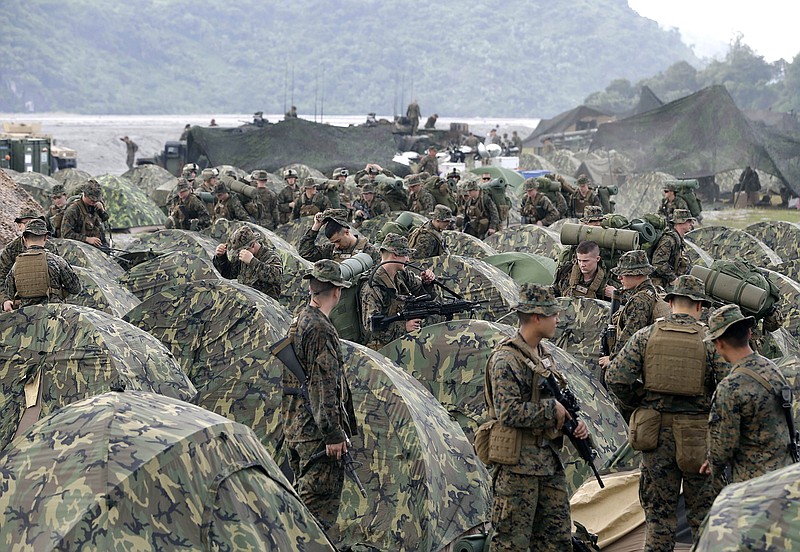MANILA, Philippines (AP) - The U.S. military will have greater access to bases across the Philippines under a new 10-year agreement set to be signed Monday in conjunction with President Barack Obama's visit and seen as an effort by Washington to counter Chinese aggression in the region.
U.S. and Filipino officials confirmed the deal ahead of Obama's stop and portrayed it is as a central part of his weeklong Asia swing.
The Enhanced Defense Cooperation Agreement would give American forces temporary access to selected military camps and allow them to preposition fighter jets and ships.
It was to be signed Monday at the main military camp in the Philippine capital, Manila, before Obama arrived on the last leg of a four-country Asian tour, following stops in Japan, South Korea and Malaysia.
A Philippine government primer on the defense accord that was seen by The Associated Press did not indicate how many additional U.S. troops would be deployed "on temporary and rotational basis." It said that the number would depend on the scale of joint military activities to be held in the camps.
The size and duration of that presence has to be worked out with the Philippine government, said Evan Medeiros, senior director for Asian affairs at the White House's National Security Council.
Medeiros declined to say which specific areas in the Philippines are being considered under the agreement, but said the long-shuttered U.S. facility at Subic Bay could be one of the locations.
Two Philippine officials confirmed the agreement to the AP before the White House announcement. The officials spoke on condition of anonymity because they were not authorized to discuss details of the pact before it was signed.
The defense accord would help the allies achieve different goals.
With its anemic military, the Philippines has struggled to bolster its territorial defense amid China's increasingly assertive behavior in the disputed South China Sea.
Manila's effort has dovetailed with Washington's intention to pivot away from years of heavy military engagement in the Middle East to Asia, partly as a counterweight to China's rising clout.
"The Philippines' immediate and urgent motivation is to strengthen itself and look for a security shield with its pitiful military," Manila-based political analyst Ramon Casiple said. "The U.S. is looking for a re-entry to Asia, where its superpower status has been put in doubt."
The convergence would work to deter China's increasingly assertive stance in disputed territories, Casiple said.
But it could further antagonize Beijing, which sees such tactical alliance as a U.S. strategy to contain its rise, and encourage China to intensify its massive military buildup, he said.

